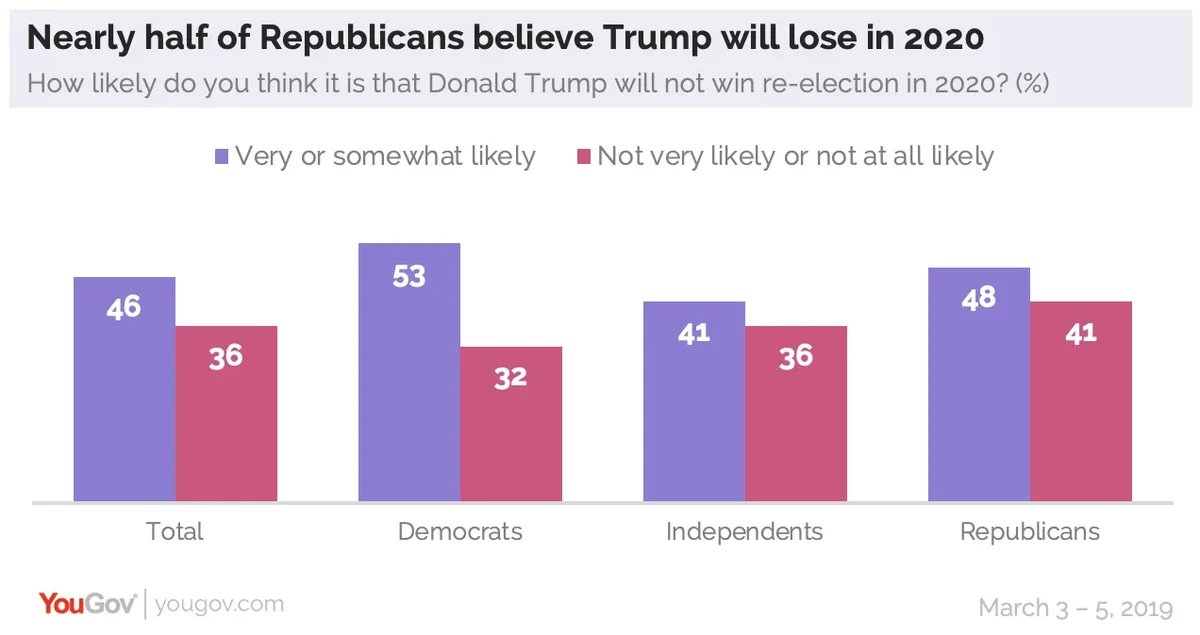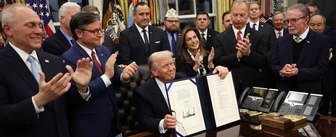A majority of Democrats have a favorable opinion of Bernie Sanders, Elizabeth Warren, Kamala Harris, and Cory Booker
November 2020 is more than a year and a half away, but candidates for the Democratic presidential nomination are plentiful, and the list is growing. There may be two reasons for this: there is no obvious frontrunner and a sense that Donald Trump may be vulnerable. In the 2016 presidential election, he lost the national vote but finished first in the Electoral College. In the latest Economist/YouGov Poll, a majority of Democrats believe it’s likely Donald Trump will lose in 2020. Nearly half of Republicans agree.
Those feelings are also reflected in the answers to a question about 2020 election preference. Among registered voters, Donald Trump is currently running behind a yet-to-be-named Democratic opponent. 48% of registered voters say they would vote for the Democrat; 41% would re-elect President Trump.
Half the public claim they’d rather Donald Trump not run for re-election. 27% think he should. Republicans are much more enthusiastic. 80% of Republicans want the President to run again.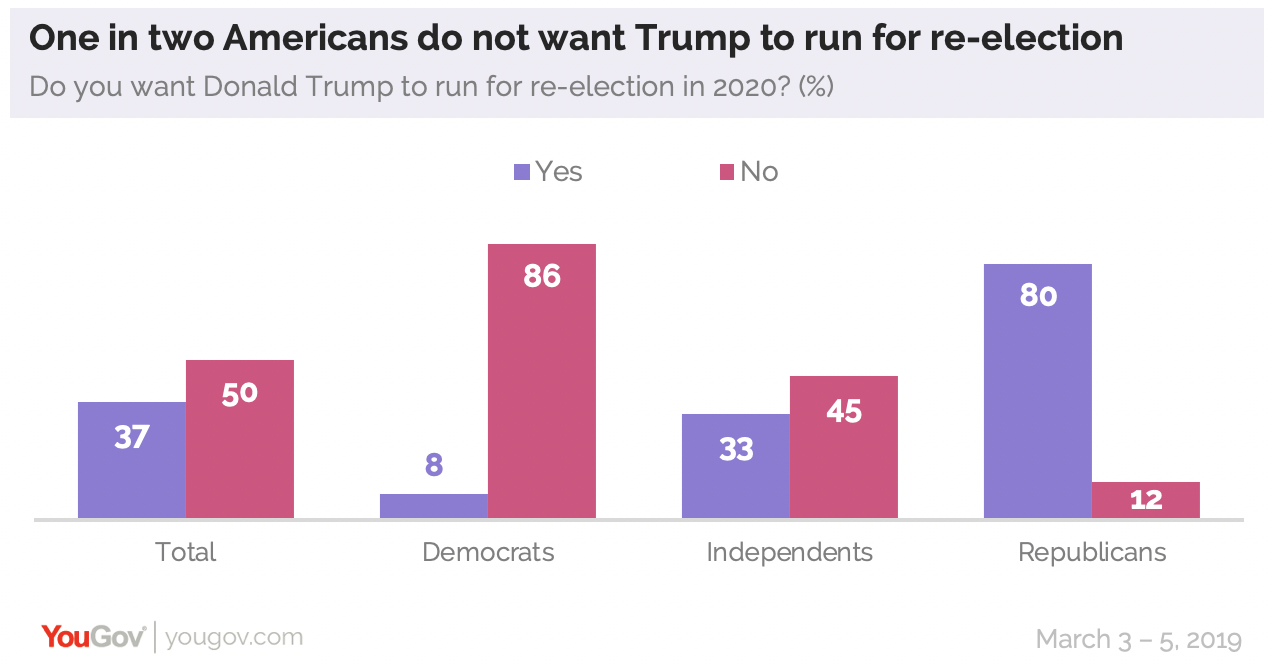
Of course, who the Democratic Party nominates will make a difference to those results. But they help explain the large number of potential candidates.
Three Senators stand out from the field when Democrats when are asked whether or not they like each announced candidate: Vermont Senator and 2016 candidate Bernie Sanders, Massachusetts Senator Elizabeth Warren, and California Senator Kamala Harris.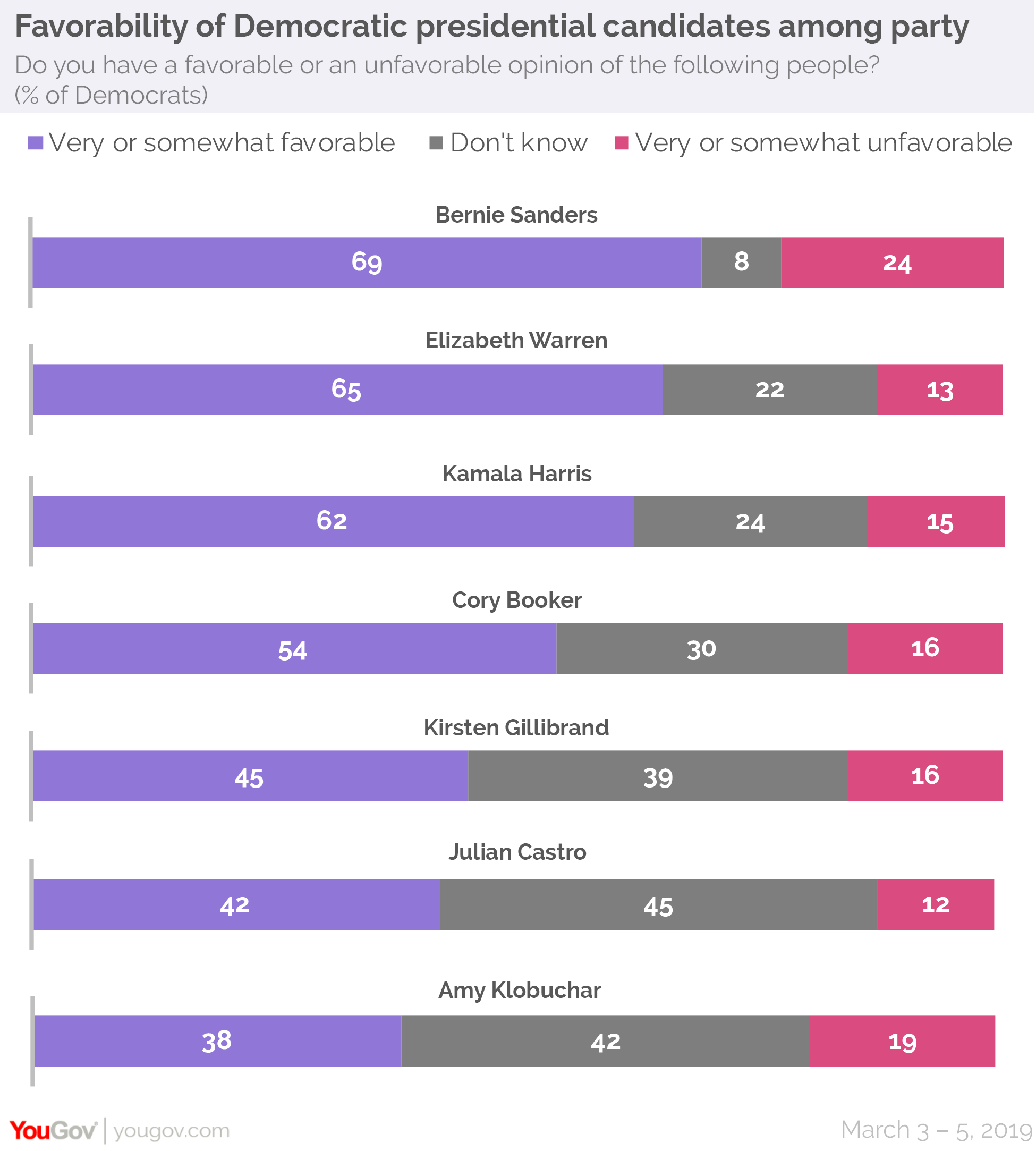
New Jersey Senator Cory Booker is the only other announced candidate whose Democratic favorable ratings above 50%. Senators Kirsten Gillibrand of New York and Amy Klobuchar of Minnesota, along with former Housing and Urban Development Julian Castro, are somewhat less well-known.
Sanders is the most well-known of the announced candidates, but he also has the highest unfavorable ratings among Democrats. His negatives are highest with older Democrats, but they are pretty much the same among women, men, whites, blacks, and liberals and non-liberal Democrats. In general, fewer Democratic women express either a positive or negative opinion of any candidates. White Democrats are more likely than black Democrats, to hold opinions of any of the candidates, even those that are African-American.
There are several announced Democratic candidates who not well-known, even in their own party. Opinion of them seems more closely divided pro and con among the relatively small percentage of Democrats with an opinion.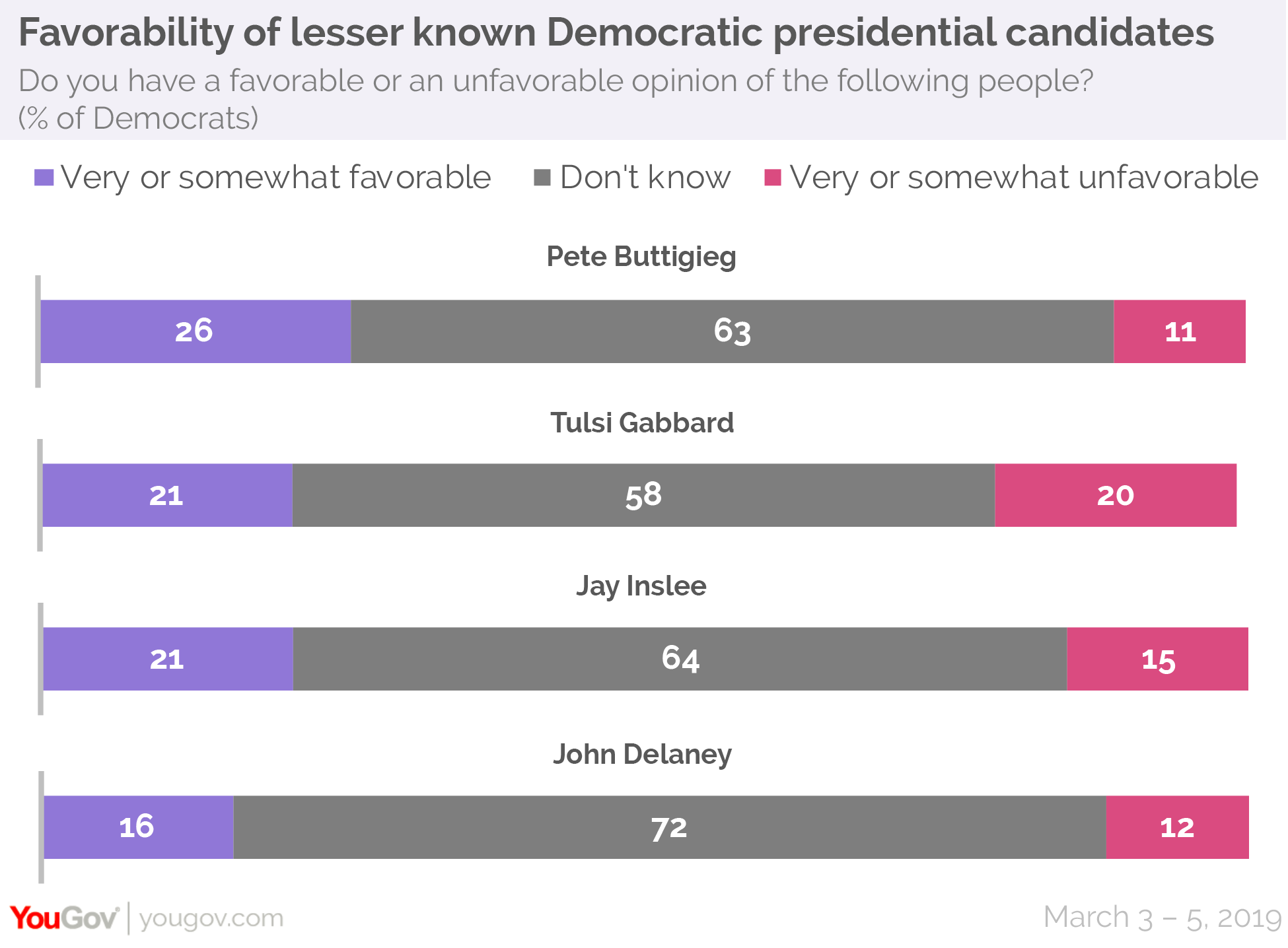
The 2020 election, like the 2016 one, could feature two candidates who are more disliked than liked. President Trump has more unfavorable than favorable assessments overall; most Democrats have higher unfavorable than favorable ratings. Sanders comes closest among the overall public: 40% are favorable, 42% are not. Americans are also closely divided on several of the other candidates, too.
The Democratic Party fares somewhat better than the GOP among registered voters. Just 39% have a favorable opinion of the Republican Party, while 46% are positive toward the Democrats.
See the full toplines and tables results here
Photo: Getty
